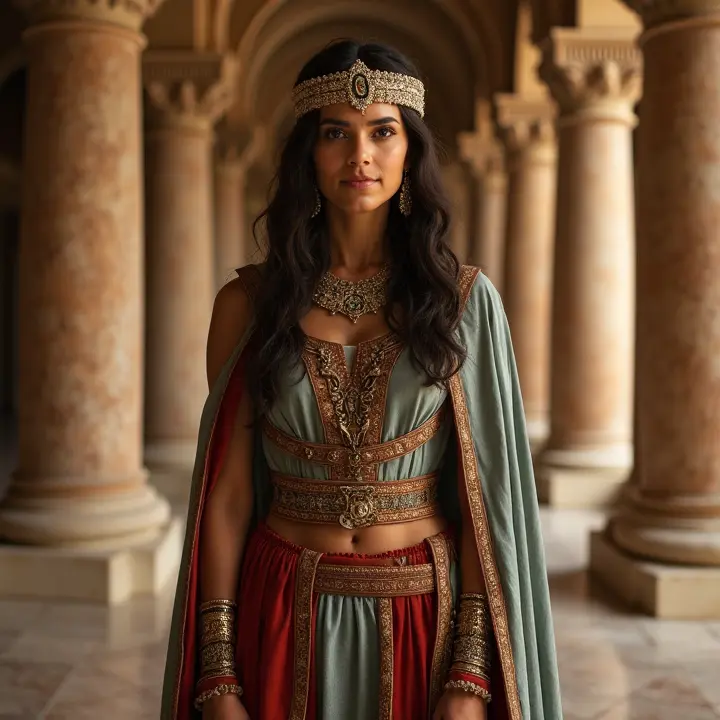In the rich tapestry of biblical narratives, the story of Esther stands out as a powerful testament to the strength, wisdom, and courage of women. Esther, the Queen of Persia, is not just a historical figure but a symbol of resilience and faith, whose story continues to inspire generations. Her tale is woven into the fabric of the Hebrew Bible, specifically in the Book of Esther, which offers a unique perspective on the role of women in a patriarchal society.
Esther’s story unfolds in the Persian Empire, during the reign of King Ahasuerus, also known as Xerxes. The empire was vast and diverse, encompassing many nations and peoples. At the heart of this grand setting, Esther’s journey begins as a young Jewish woman named Hadassah. She was raised by her cousin Mordecai, who became her guardian after her parents died. Mordecai was a devout Jew, and his influence played a crucial role in shaping Esther’s character and values.
The turning point in Esther’s life came when she was chosen to participate in a beauty contest organized by King Ahasuerus. The king had dismissed his previous queen, Vashti, for refusing to obey his command, and he sought a new queen to replace her. Esther, with her grace and beauty, caught the king’s eye, and she was eventually chosen as the new queen. However, she kept her Jewish identity a secret, as advised by Mordecai, to protect herself and her people.
Esther’s rise to the throne was not just a matter of luck or beauty. It was a strategic move orchestrated by divine providence. Her position as queen placed her in a unique position to influence the fate of her people. This opportunity soon presented itself when Haman, the king’s chief advisor, devised a plot to exterminate all Jews in the Persian Empire. Haman’s hatred for Mordecai, who refused to bow down to him, led him to seek the extermination of the entire Jewish community.
When Mordecai learned of Haman’s plans, he was devastated. He knew that the fate of his people rested on Esther’s shoulders. He sent a message to her, urging her to intercede on behalf of the Jews. Esther’s response was a moment of profound introspection and courage. She realized that her position as queen was not for her personal glory but for a higher purpose. She decided to risk her life by approaching the king without being summoned, an act that could have led to her immediate execution.
Esther’s plan was both bold and wise. She invited the king and Haman to a series of banquets, using these gatherings to gain the king’s favor and to expose Haman’s treachery. At the second banquet, Esther revealed her true identity as a Jew and pleaded for the lives of her people. Her courage and eloquence moved the king, who then reversed the decree and ordered Haman’s execution. The Jews were saved, and Esther’s bravery became legendary.
Esther’s story is a powerful reminder of the influence and agency that women can wield in the face of adversity. She was not a passive figure in her own destiny but an active participant in shaping the course of events. Her wisdom in handling the delicate situation with the king, her courage in risking her life, and her unwavering commitment to her people are qualities that make her a remarkable biblical heroine.
Moreover, Esther’s story highlights the importance of faith and divine providence. Her rise to the throne and her ability to save her people were not mere coincidences but part of a larger divine plan. The Book of Esther, unlike many other biblical books, does not explicitly mention God’s name. However, His presence is felt throughout the narrative, guiding Esther’s actions and orchestrating events to bring about justice and salvation.
In a broader context, Esther’s story challenges traditional gender roles and expectations. She defied the norms of her time by stepping out of her prescribed role as a queen and taking on the mantle of leadership. Her actions demonstrate that women, like men, have the capacity for greatness and can make significant contributions to their communities. Esther’s legacy is a testament to the power of women to shape history and to inspire future generations.
The story of Esther is not just a historical account but a timeless narrative that continues to resonate with people today. It speaks to the universal themes of courage, faith, and the triumph of good over evil. Esther’s journey from an obscure Jewish girl to the Queen of Persia is a reminder that even in the most challenging circumstances, one can find strength and purpose. Her story encourages us to recognize the potential for greatness within ourselves and to use our gifts and opportunities to make a positive impact on the world.
In conclusion, Esther’s story is a shining example of the powerful role that women can play in shaping the course of history. Her bravery, wisdom, and faith continue to inspire and empower women and men alike. As we reflect on her journey, we are reminded that each of us has the potential to be a hero in our own right, standing up for what is right and making a difference in the lives of others. The story of Esther, Queen of Persia, is not just a chapter in the Bible but a timeless tale of courage and hope that endures through the ages.

